Could evangelical Christian women hold the key to compromise on immigration reform?
When Carla Cochrane felt a spiritual calling to the U.S.-Mexico border, she prayed on it.
The 62-year-old evangelical Christian from rural Texas believed God had "laid on her heart" a mission to serve asylum-seekers. She didn't expect her calling would be controversial.
"I felt my friends and family were going to be excited for me," she said about her 2019 epiphany. "But I didn’t get that reaction. It was like, 'What? Why do you want to go there?'"
Cochrane lives in deep red Texas, south of Dallas in Ellis County, where Donald Trump won more than two-thirds of the vote in 2016 and 2020. To Cochrane, helping asylum-seekers sounded like a Biblical call to welcome the stranger. To her conservative community, she sounded like a liberal.
"I felt very lonely," she said.
White evangelical Christians helped deliver Trump's 2016 presidential victory in a campaign fueled by his "build the wall" mantra. They favored him again in 2020. Surveys suggest white evangelical Christians are lining up behind him in 2024, even as he calls for "the largest deportation program in American history."
But there are signs of fissures. A small, but growing, group of evangelical Christian women like Cochrane are questioning the narrative of "invasion" at the southern border. They're wondering why lawmakers can't reform the nation's immigration laws in a way that could both enhance border security and treat people humanely.
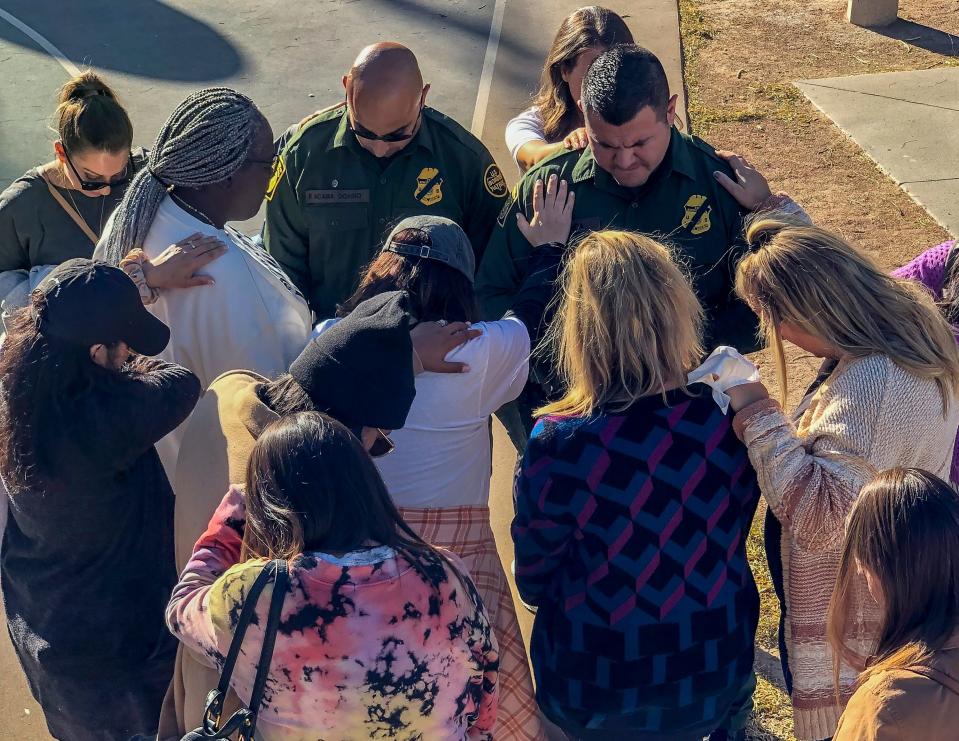
They say they're returning to the roots of their faith: hewing as closely as possible to the gospel.
"The Bible doesn’t have anything to say about U.S. immigration policy, but it does have a lot to say about the immigrant and the refugee," said Bri Stensrud, director of Women of Welcome, a community of more than 130,000 evangelical Christian women. Group members are, by and large, conservative, anti-abortion and trying to square the Republican Party's razor-wire immigration politics with the compassion that their faith demands of them.
For a time, Cochrane stopped talking out loud about her own "calling."
Instead, she and a trusted friend drove 480 miles to the border and volunteered with local Catholic organizations providing aid to asylum-seekers. Back home, she retreated online, searching for like-minded women.
That's when she found Women of Welcome on Facebook.
"I joined the private group immediately," Cochrane said. "I felt like I was safe there to talk about things."
More: 'Tell the family we're going to kill them tomorrow': Migration crisis unveils new horrors
Pro-life values, compassion for immigrants
Stensrud lives in Colorado, describes herself as conservative and worked for years in the anti-abortion movement. In the first year of the Trump administration in 2017, she got a call from a mentor, challenging her: Did her commitment to pro-life values extend to the lives of migrants? Would she be interested in taking the helm of a new project, called Women of Welcome?
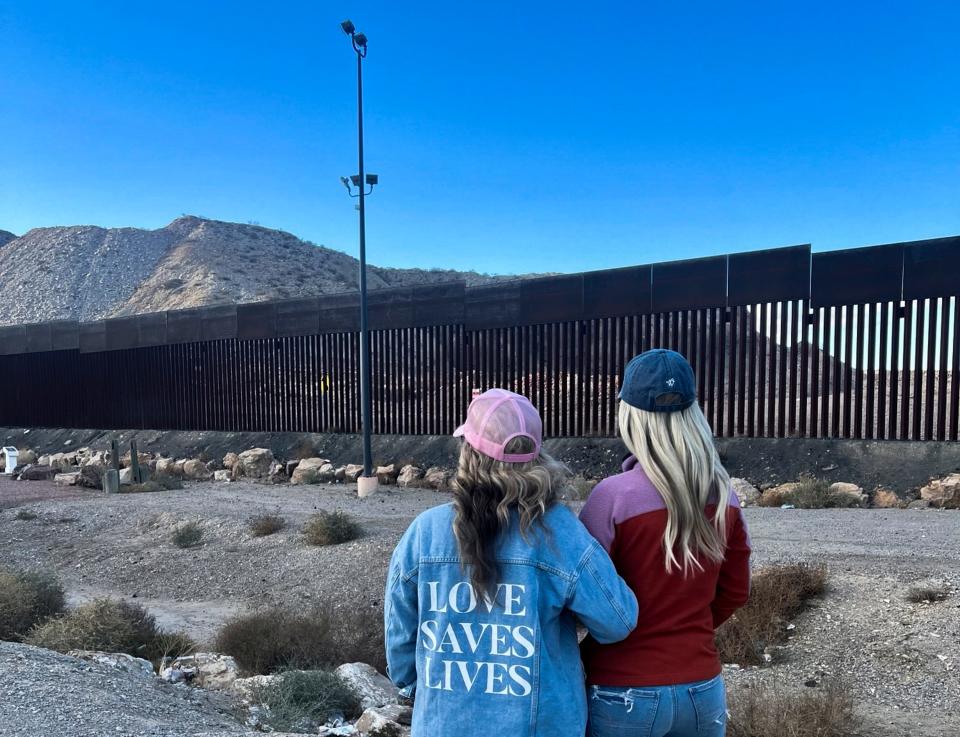
At the time, World Relief – the humanitarian arm of the National Association of Evangelicals – had conducted a study on the immigration views of self-identified evangelical Christians.
The results showed that evangelical Christian views on immigration were more influenced by media than the Bible. But broken down by gender, the researchers concluded, women showed higher levels of compassion than men.
"The research said there is a pocket of women out there who want to learn about the issues from a Biblical perspective, not a political perspective," said Stensrud, who is also the author of the book, "Start with Welcome: The Journey Toward a Confident and Compassionate Immigration Conversation," which publishes Tuesday.
Stensrud agreed to travel to Oaxaca, Mexico, on a trip led by World Relief and the nonpartisan National Immigration Forum, which together support Women of Welcome.
The group visited a migrant shelter for unaccompanied children. She felt judgmental before even arriving, she told a Christian podcaster in 2021: How could a mother ever leave her child behind?
But the migrants' stories of survival were worse than anything she – a privileged, white, Christian mother living in the U.S. – could ever have imagined.
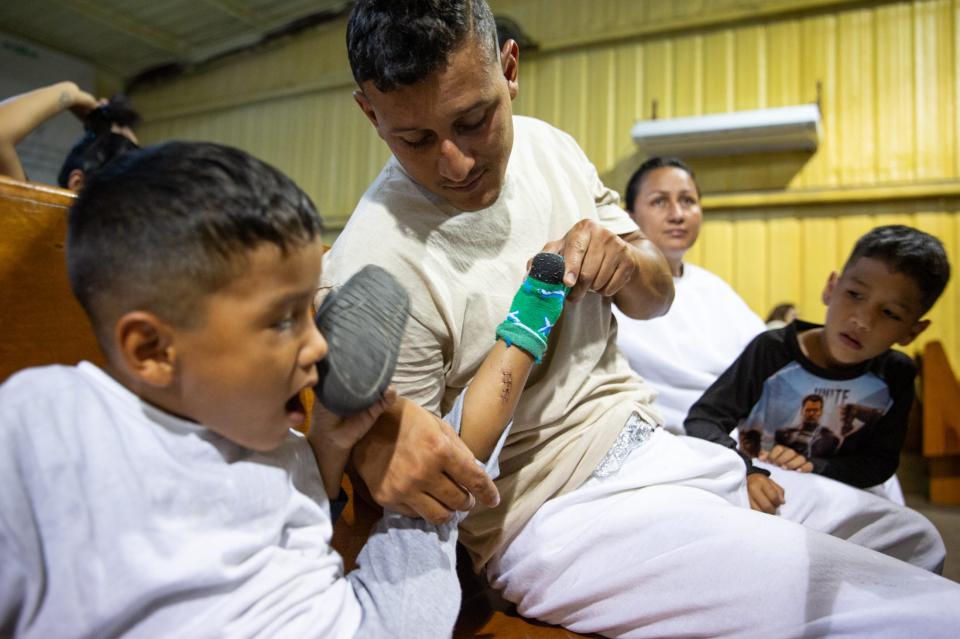
"I thought I was being holistically pro-life. I thought I was including it all," Stensrud said on an episode of The Happy Hour with Jamie Ivey. But by the end of the trip, she said, "I looked like I got hit by a semi."
She stepped into a storage room to break away from the group. "And I just started bawling uncontrollably," she said. "I was so grieved. I’ve been in this movement for so long. I thought to myself, 'If my girlfriends could see what I see they would be just as grieved, too.'"
She took the offer to lead the Women of Welcome community.
Seven years later, Stensrud has led evangelical Christian women on dozens of similar immersion trips to border communities in Texas and California to volunteer with migrants and aid workers, and meet Border Patrol agents and faith leaders. Women of Welcome's original Bible study has been downloaded over 125,000 times, and the private Facebook group Cochrane joined in 2019 now has more than 5,000 members.
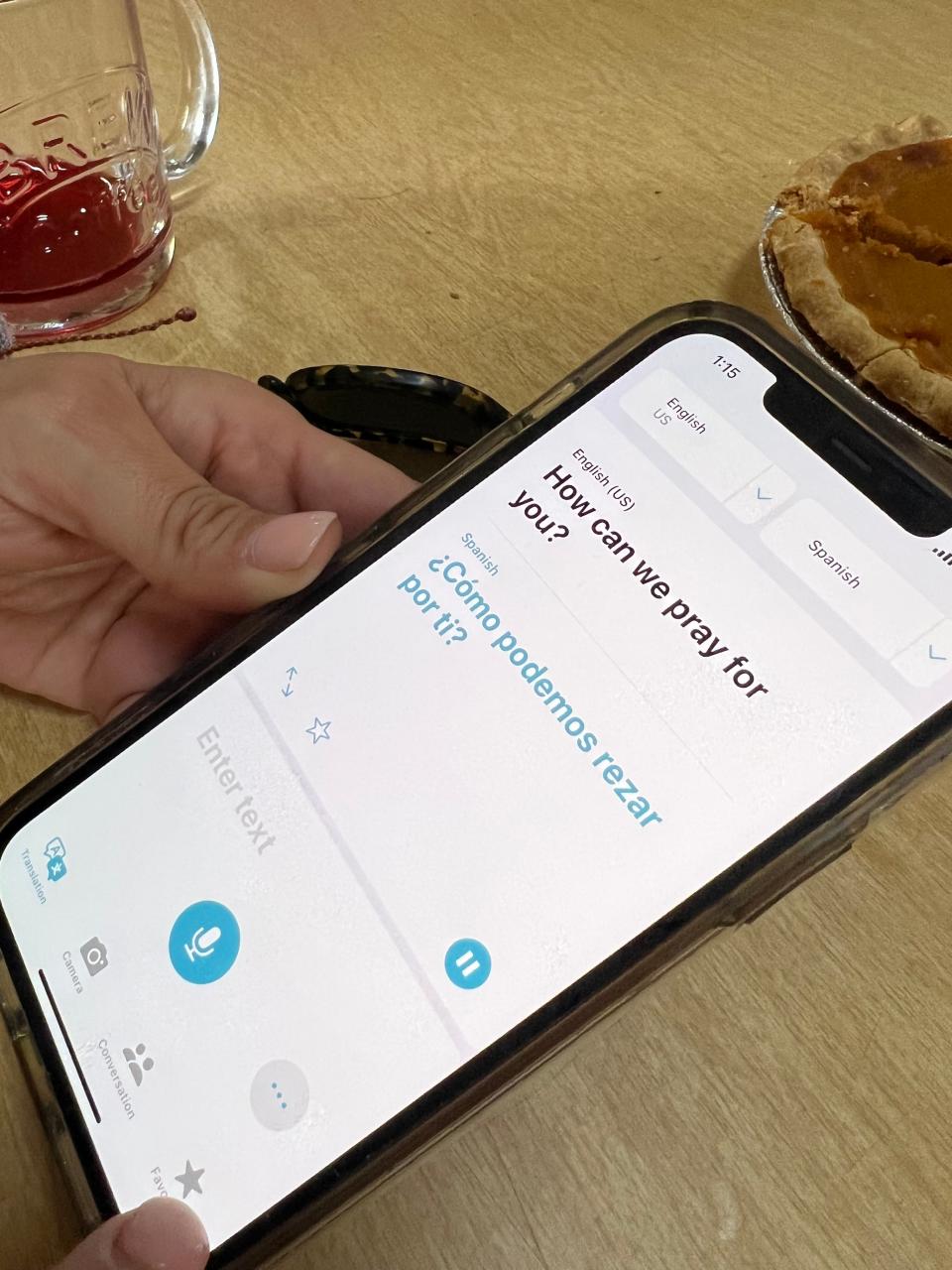
Members take turns reading Scripture in videos on the group's social media, including the verse from Matthew 25:35, "For I was hungry and you gave me something to eat, I was thirsty and you gave me something to drink, I was a stranger and you invited me in."
Evangelical women 'going against the grain' on immigration
Women of Welcome doesn't have a political agenda. The community explicitly doesn't talk presidential politics. It's been challenging enough to encourage evangelical Christian women to consider perspectives that clash with their political identity, Stensrud said.
She tells them, "Your compassion isn't political. It's meant to be prophetic."
Their reluctance to take their compassion into the political sphere is frustrating for some Latino evangelicals, who for decades have been active advocates for immigration reform, said the Rev. Gabriel Salguero, president of the National Latino Evangelical Coalition.
Unlike in white communities, many Latino families of mixed immigration status don't have the luxury of distance from the issue, he said. They live with the constant threat of a loved one being deported.
"We believe Scripture is clear in telling us to welcome the stranger," he said. "The history of evangelical advocacy on immigration is grounded in the Latino immigrant church. We Latino evangelicals, we care about the economy and people’s human rights. We want a balanced approach. We’re politically homeless."
But white evangelical Christianity is now so intertwined with MAGA politics and anti-immigrant rhetoric that there is little room for dissent or compassion, said Samuel Perry, a professor of sociology at the University of Oklahoma who also grew up in an evangelical community.
"Is it radical in terms of the teaching of the Bible? Absolutely not," Perry said. But Cochrane and the Women of Welcome group "are swimming against the current of where white evangelicalism is going. I can see why they feel out of place in their communities."
Perry said it's unlikely that this "vocal exception" among evangelicals will move the political needle in the 2024 election. Up against a Democrat, evangelical support for Trump has hovered above 80% for years, Perry said.
Like Cochrane, Stensrud has witnessed firsthand the pushback that women in evangelical communities face when they want to go deeper on the immigration issue.
Stensrud said she tells them, "It's going to be hard. When you develop an outward compassion for immigrants and refugees, it’s likely your husband isn’t going to understand. Your friends might say, ‘It looks like you’re turning into a liberal.’"
"That is what people don’t understand about conservative communities," she said. "Going against the grain is not something you do."
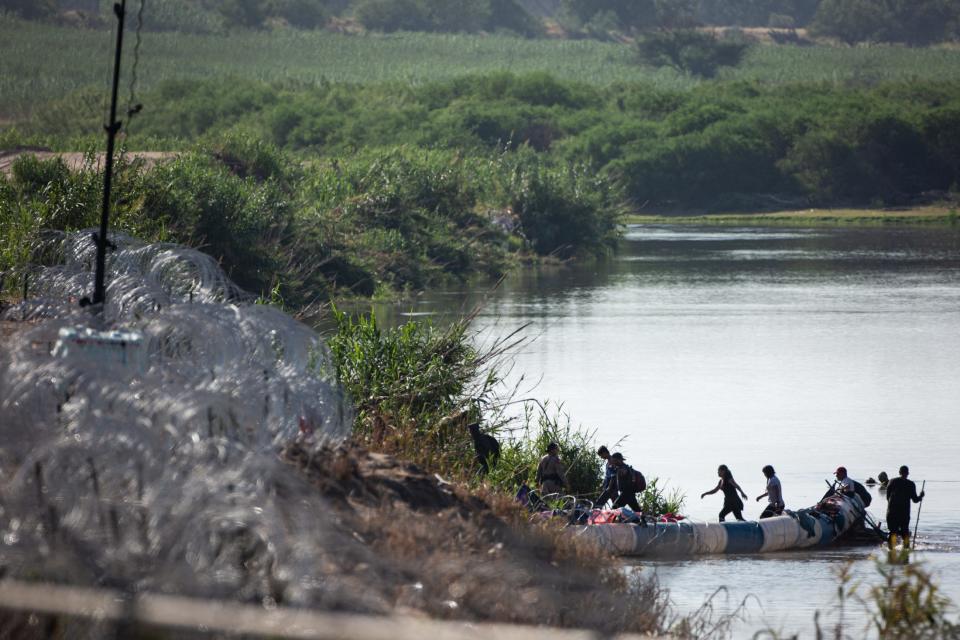
She is preaching the idea that compassionate-minded evangelical Christians could find common ground with progressives on issues that she says fall into the "sanctity of life" category.
Something just happened in Congress that suggests Stensrud may be right. Two groups on opposite sides of the abortion issue, Antiabortion Americans United for Life and the pro-choice Center for American Progress, both threw their support behind a bipartisan deal to boost the child tax credit to families. It passed the House in late January with sweeping support from both Democrats and Republicans.
As Latino evangelical Christians continue to press for immigration reform, Salguero warned against giving newcomers to the movement too much credit. But, he added, "We welcome and celebrate all allies. At the end of the day, evangelicals of every stripe, color and generation will have to weigh how important immigration is as a voting issue among the long list – because we are not one-issue voters."
For her part, Cochrane has invited members of her church to her calling. She has helped organize mission trips to the Texas-Mexico border, and this spring, her 15-year-old granddaughter plans to accompany her on a "grandparents" mission to South Texas – the first member of her family to join her.
She tears up at the thought.
"I will tell you," she said, "I believe God allowed me to see through the eyes of Christ and when you see things that way, when you see women and children and men – and you learn their names – it’s totally different. You see the human side that deserves dignity and, for me, compassion."
Lauren Villagran can be reached at [email protected] or on Instagram @fronteravillagran.
This article originally appeared on USA TODAY: The border crisis has a new group of sympathizers: evangelical women
